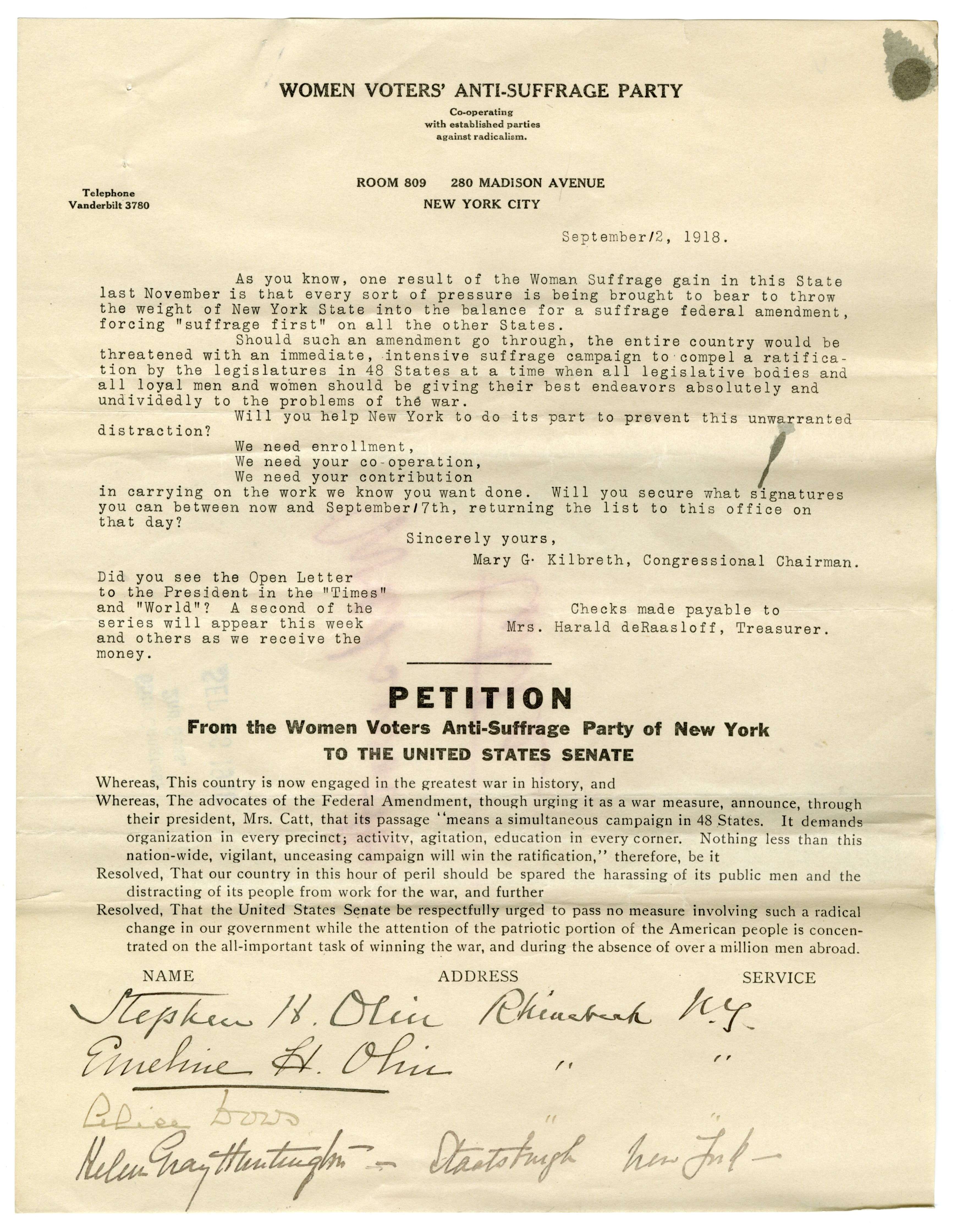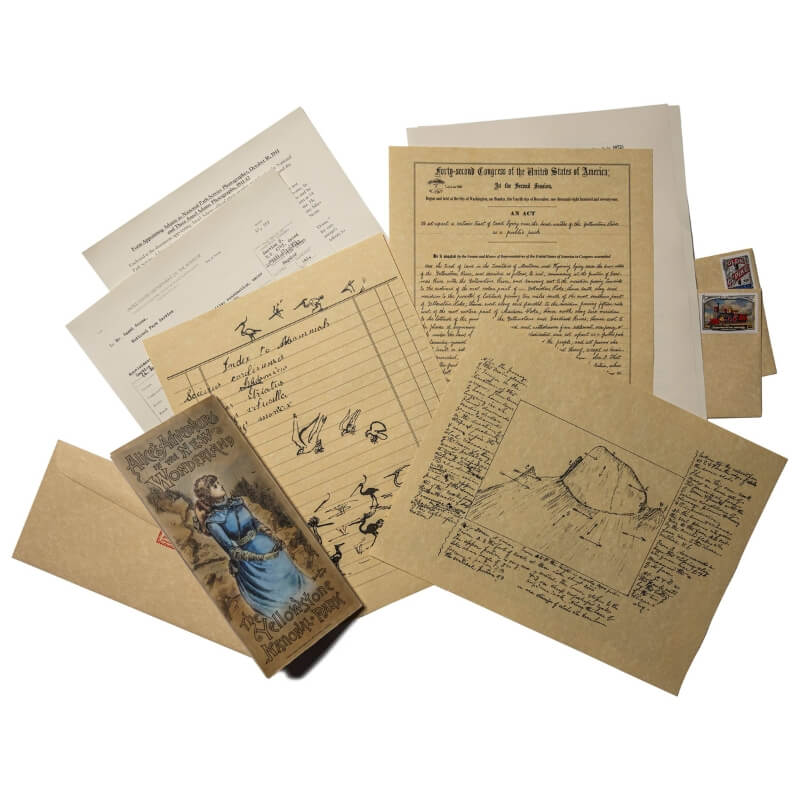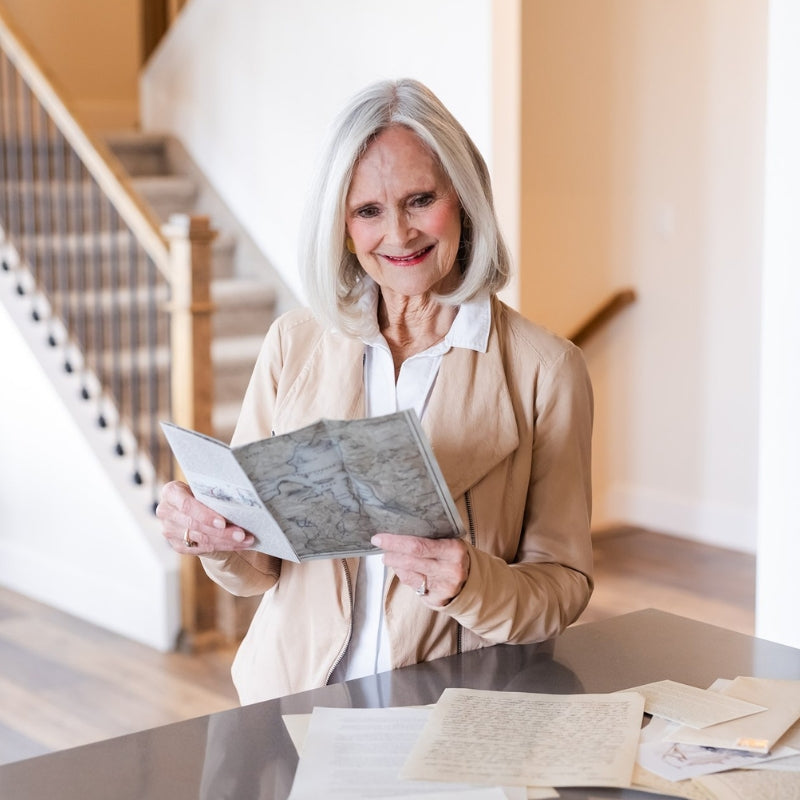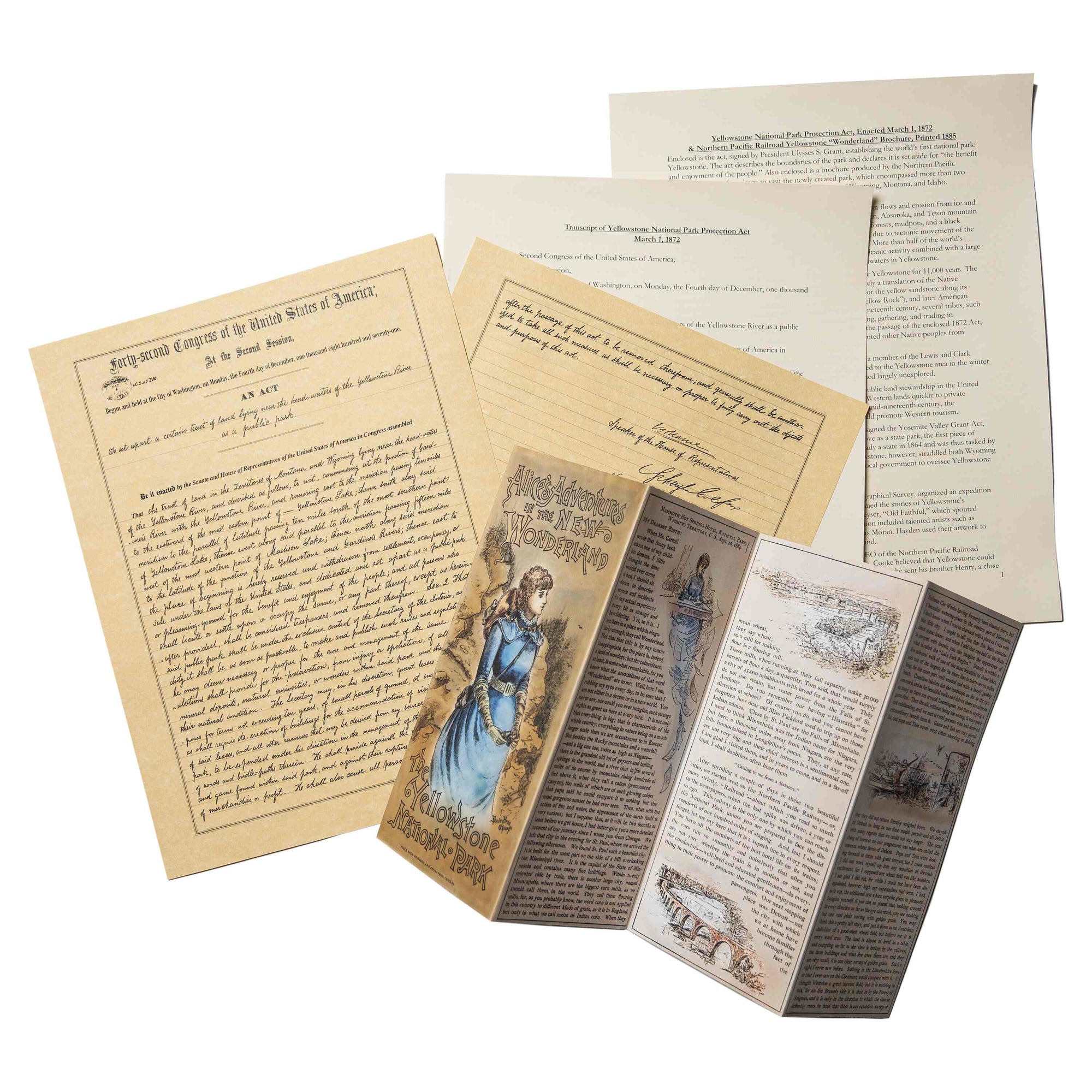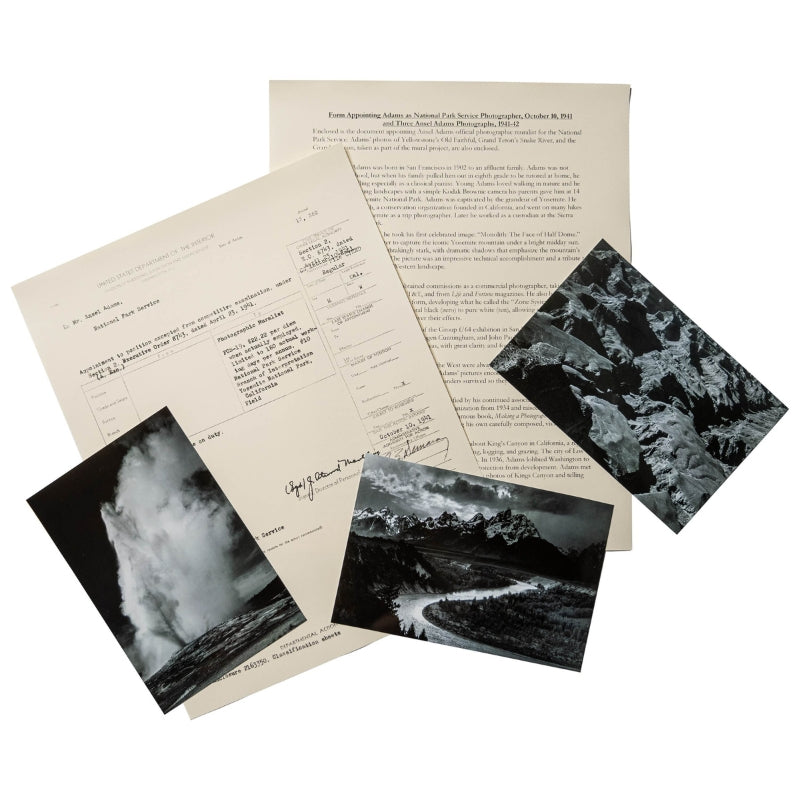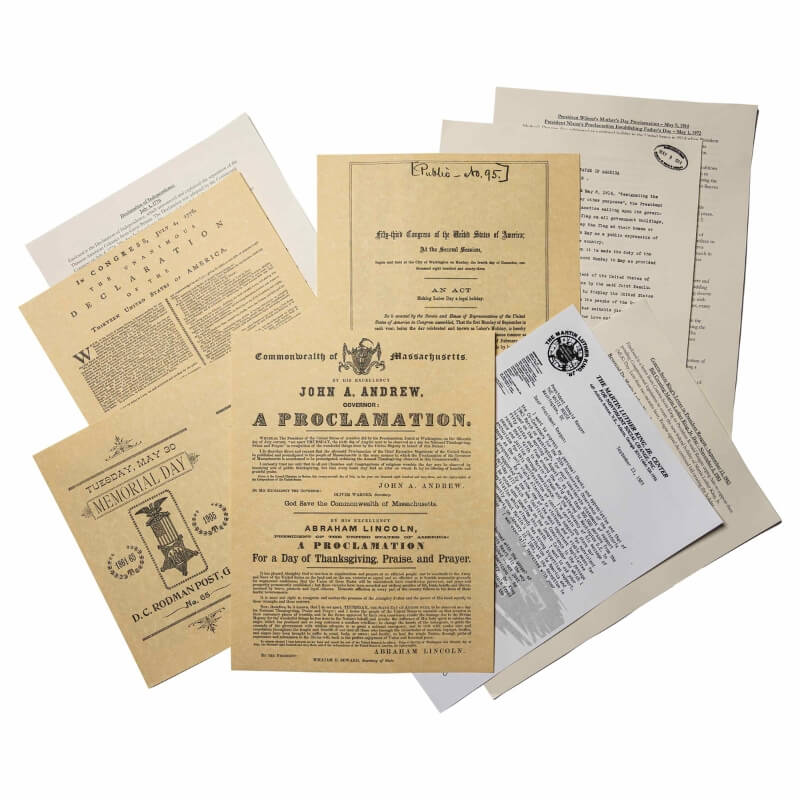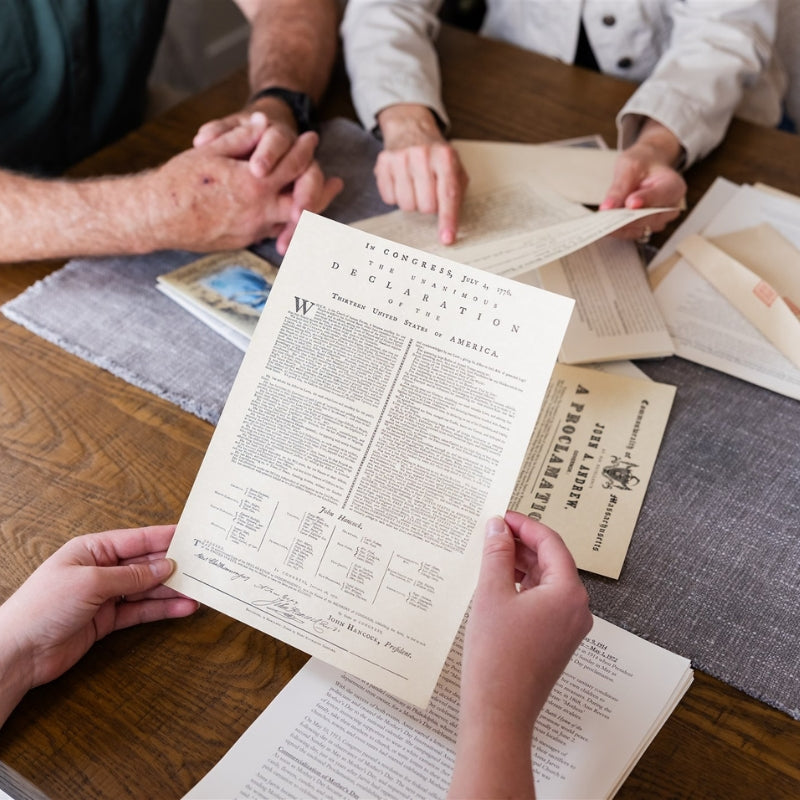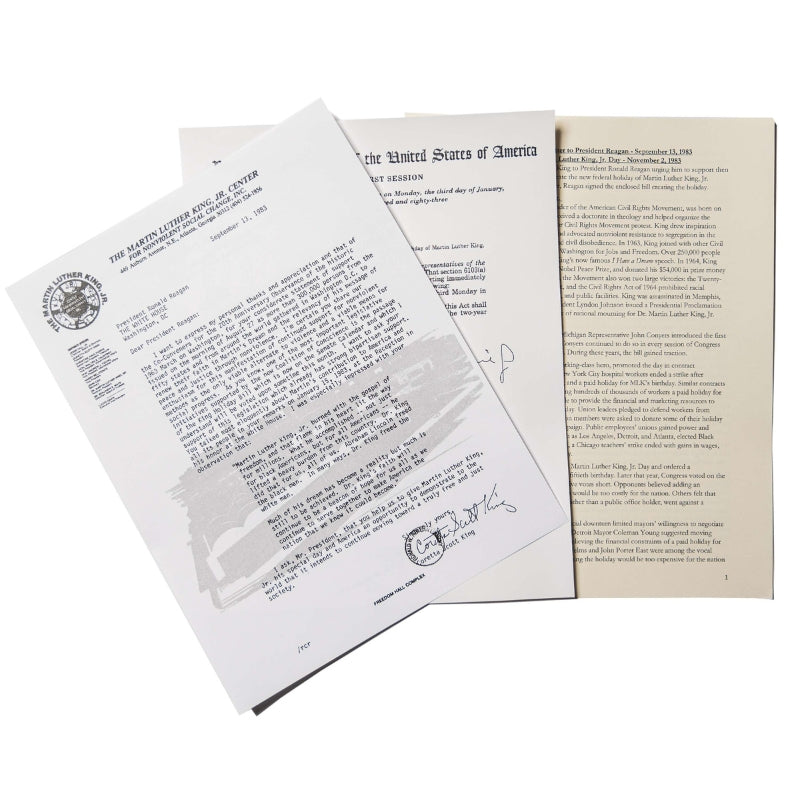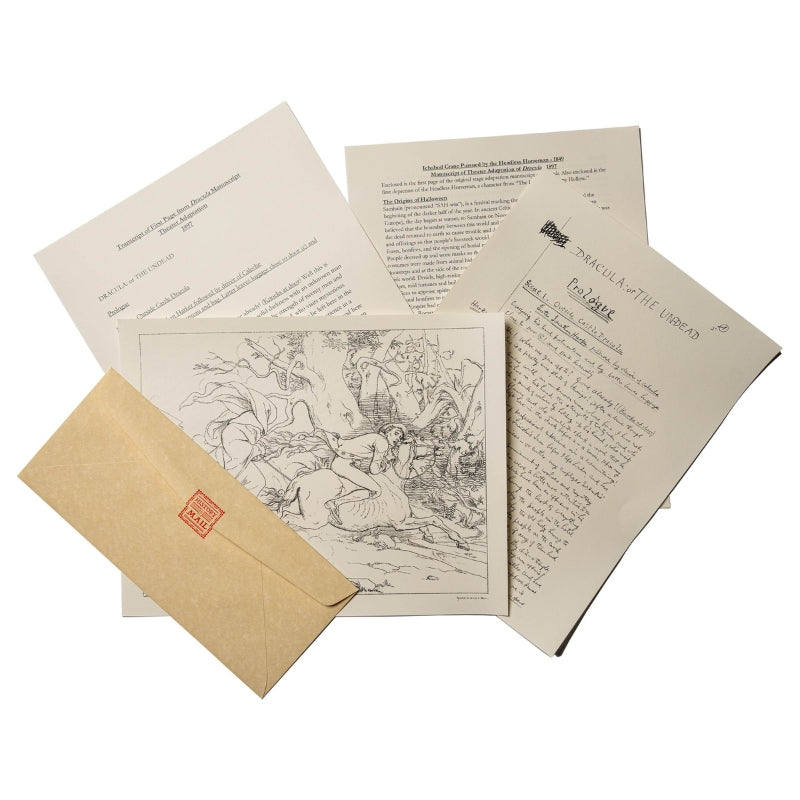In the decades leading up to the ratification of the 19th Amendment in 1920, as the women's suffrage movement was growing, an anti-suffragist movement also emerged. Dozens of State and national anti-suffrage organizations were created. Many of the leaders of the anti-suffrage movement were actually women.
There were various reasons many women opposed allowing women to vote. Some women believed suffrage violated traditional gender roles and that voting would threaten the institution of family. They felt that women already had their own unique rights and responsibilities in the domestic sphere. Others felt the government would be weakened by an influx of ill-informed women who lacked knowledge about political issues that were beyond the scope of the domestic sphere. Some felt that giving women the right to vote would overburden women with political concerns. Others felt social reform was better accomplished through trade unions and non-partisan groups.
Even liberal voices such as Emma Goldman voiced opposition to women's suffrage on the grounds that is was a diversion from more important issues and that social revolution would be more effective than seeking privileges within a morally failed social and political system.
The petition below from the Women Voters Anti-Suffrage Party of New York, urges the U.S. Senate not to pass the 19th Amendment. Among the reasons listed for women not to gain the right to vote nationally is so the country "should be spared the harassing of its public men and the distracting of its people from work for the war" in "this hour of peril," a reference to WWI.
